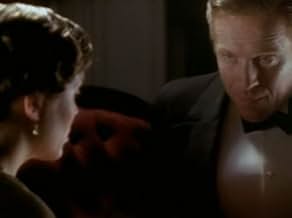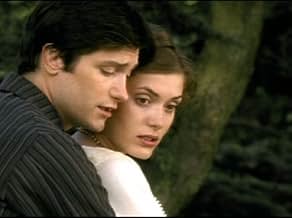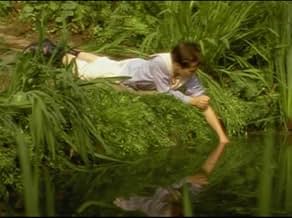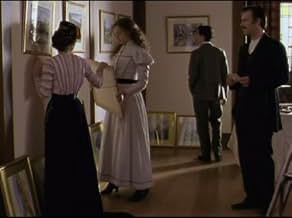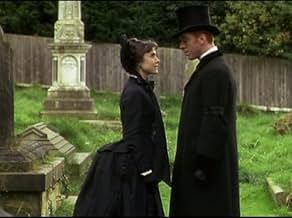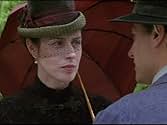Chronicles the lives of three generations of the upper-middle-class British family, the Forsytes, from the 1870s to 1920.Chronicles the lives of three generations of the upper-middle-class British family, the Forsytes, from the 1870s to 1920.Chronicles the lives of three generations of the upper-middle-class British family, the Forsytes, from the 1870s to 1920.
- Won 1 BAFTA Award
- 2 wins & 4 nominations total
Browse episodes
Featured reviews
I have not seen the original film or read the book, so I have a fresh perspective on this version of The Forsyte Saga. It is a brilliantly acted, emotionally stirring film. Damian Lewis is outstanding. He brings such intense emotions to the character of Soames. I don't know if it's the character but I like to think it's his acting that makes you almost feel sorry for this man. How can you feel sorry for someone who, on the surface can be so cruel? Well, that is the genius of Damian Lewis! He brings such passion to the complex character of Soames that you can't stop watching it! He expresses so realistically the repressed emotions of the character. I feel that is what makes this film so moving, it's so human. The film displays w/such heartache(thanks to the acting) the struggles and human complexities of individuals forced to stay within the expectations of their repressed society. The actors effectively display how the characters desperately need & want love and acceptance, but don't have a clue how to obtain it, although some do find love eventually. I definitely recommend this film to anyone who likes period type/costume dramas which showcases brilliant acting. And if you don't know Damian Lewis, this is an excellent introduction to his work!
I truly enjoyed this mini-series. I felt that Damian Lewis' portrayal of Soames was truly award-winning. After seeing him in other roles (most notably Band of Brothers), I am even more impressed with his range. I also don't agree with those who felt that the Irene' should have been played by a "prettier" actress. I felt that Gina McKee's true beauty was exposed once you looked at the person inside, exactly as Irene's was. I would recommend this to anyone!
All I can say about this series is that it should of been called The Irene Forsyte Saga.
A remake of the 1967 original, the 2002 mini-series boasts some fine performances, especially from Band of Brothers' Damian Lewis as the often unfeeling Soames Forsyte, and Gillian Kearney as June Forsyte (the graveyard scene between these two characters is superb!)
The story follows three generations of the Forsyte family, from about the 1880s to the death of Queen Victoria. There is a nice blend of humour, action, and drama to keep the viewer interested in the proceedings. If you're like me and into family sagas, I recommend watching this, or, if you can't, reading the book by John Galsworthy.
The story follows three generations of the Forsyte family, from about the 1880s to the death of Queen Victoria. There is a nice blend of humour, action, and drama to keep the viewer interested in the proceedings. If you're like me and into family sagas, I recommend watching this, or, if you can't, reading the book by John Galsworthy.
Comparisons between the 60s version of this splendid work and the latest one are difficult because they were both great. I have really enjoyed the last version especially as regards the performances of Damian Lewis and Gina McKee.
One previous contributor said that he found himself almost liking Soames which 'we were not supposed to do'. Is that right? Galsworthy intended The Forsytes to be representative of the upper middle class with some bad aspects - arrogance, lack of sentiment, conscious always of their respectability - but also with a positive side - sturdy, determined, ambitious, but ultimately concerned with ownership and property. Soames is an extreme example of his kind, to the extent that he regards people - especially his wife - as potential property. Irene, on the other hand, represents the new force which, along with the effects of WWI and the rise of the Welfare State, nationalisation etc will soon overthrow the old order.
Superficially at least, Soames is the villain. He appears to terrorise his wife, physically abuses her and more. However, is there another side to this? Irene marries him quite cynically for materialistic reasons. It's not merely a question of 'not loving' him. He positively makes her flesh creep right from the start. We are given the idea that she is forced to marry him by her stepmother and by her poverty. Force her?? As the story goes forward, we see that she is a strong character - no-one can force her to do anything. Her poverty? She has £50 per annum from her father. This might not seem a lot, but it was about what an artisan earned in a year at that time (on which he was expected to keep a family). Despite his treating her as property, Soames does love Irene in his way and he does try his best to give her what she wants. In return she is openly unfaithful to him, denies him children and even conjugal rights. As regards his bad treatment of her, she certainly returns the compliment in kind. She could be looked on as something of a vampire - she sucks the life force from Soames and old Jolyan and wantonly destroys the happiness of her friend June and Bossiney (though admittedly he goes along willingly). As regards her own son her hatred of Soames tempers her dislike of Fleur so even her son is badly affected by her force of character and neurosis.
I think Galsworthy, as well as writing a simple commentary on Edwardian and Victorian life was also trying to divide his readers into factions - the pro-Soames camp who like the old ways, and the pro-Irene (the 'new woman' camp) who wanted change.
Whatever, I have to congratulate Gina McKee. She carried off that complex character of Irene so well. Her enigmatic Mona Lisa smile, did it display goodness? Or the opposite? I'm still not sure
One previous contributor said that he found himself almost liking Soames which 'we were not supposed to do'. Is that right? Galsworthy intended The Forsytes to be representative of the upper middle class with some bad aspects - arrogance, lack of sentiment, conscious always of their respectability - but also with a positive side - sturdy, determined, ambitious, but ultimately concerned with ownership and property. Soames is an extreme example of his kind, to the extent that he regards people - especially his wife - as potential property. Irene, on the other hand, represents the new force which, along with the effects of WWI and the rise of the Welfare State, nationalisation etc will soon overthrow the old order.
Superficially at least, Soames is the villain. He appears to terrorise his wife, physically abuses her and more. However, is there another side to this? Irene marries him quite cynically for materialistic reasons. It's not merely a question of 'not loving' him. He positively makes her flesh creep right from the start. We are given the idea that she is forced to marry him by her stepmother and by her poverty. Force her?? As the story goes forward, we see that she is a strong character - no-one can force her to do anything. Her poverty? She has £50 per annum from her father. This might not seem a lot, but it was about what an artisan earned in a year at that time (on which he was expected to keep a family). Despite his treating her as property, Soames does love Irene in his way and he does try his best to give her what she wants. In return she is openly unfaithful to him, denies him children and even conjugal rights. As regards his bad treatment of her, she certainly returns the compliment in kind. She could be looked on as something of a vampire - she sucks the life force from Soames and old Jolyan and wantonly destroys the happiness of her friend June and Bossiney (though admittedly he goes along willingly). As regards her own son her hatred of Soames tempers her dislike of Fleur so even her son is badly affected by her force of character and neurosis.
I think Galsworthy, as well as writing a simple commentary on Edwardian and Victorian life was also trying to divide his readers into factions - the pro-Soames camp who like the old ways, and the pro-Irene (the 'new woman' camp) who wanted change.
Whatever, I have to congratulate Gina McKee. She carried off that complex character of Irene so well. Her enigmatic Mona Lisa smile, did it display goodness? Or the opposite? I'm still not sure
Did you know
- TriviaWendy Craig was asked to play Aunt Juley as she had done in the first series but was not available because of her regular role in The Royal (2003).
- Quotes
Soames Forsyte: You know nothing about it. Your friendship with her was a sham!
June: Yes! She stole the love of my life, my future. I should hate her but the alternative was you. I cannot hate her. I can only wonder why she did not do it sooner.
- ConnectionsFeatured in The Best of Masterpiece Theatre (2007)
- SoundtracksIrene's Song
(End titles music)
Music by Geoffrey Burgon
Lyrics by Jacqueline Kroft
Performed by Bryn Terfel
- How many seasons does The Forsyte Saga have?Powered by Alexa
Details
- Release date
- Country of origin
- Official sites
- Language
- Also known as
- La saga de los Forsyte
- Filming locations
- Production companies
- See more company credits at IMDbPro
Contribute to this page
Suggest an edit or add missing content









